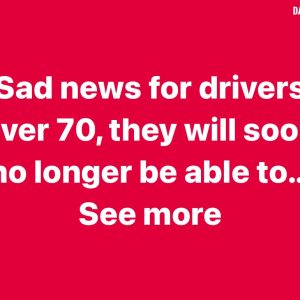President Donald Trump has turned his attention to Memphis, Tennessee, launching what he described as an aggressive new initiative to combat rising crime in the city. On Monday, from the Oval Office, Trump signed a presidential memorandum establishing the Memphis Safe Task Force—a move he framed as the next step in a broader campaign to tackle urban violence across the country.
“I’m signing a presidential memorandum to establish the Memphis Safe Task Force,” Trump declared, seated behind the Resolute Desk. “This is very important because of the crime in Memphis and many other cities. We’ll handle it step by step, just like we did in D.C.”
The announcement marks the second time in recent months that Trump has directly ordered federal forces into a city. His previous deployment in Washington, D.C., earlier this summer drew both praise and criticism but, according to the president, proved “extraordinarily successful.”
A Multi-Agency Effort
The Memphis task force is not a single-unit deployment but a coordinated federal operation involving multiple law enforcement and security agencies. Alongside the FBI, the initiative will include the Bureau of Alcohol, Tobacco, Firearms and Explosives (ATF), the Drug Enforcement Administration (DEA), Homeland Security Investigations, and Immigration and Customs Enforcement (ICE). Trump stressed that the operation will closely mirror the structure of the Washington crackdown, which he frequently cites as a model for reducing violent crime.
“The task force will be a replica of our extraordinarily successful efforts in D.C., and you’ll see it’s a lot of the same approach,” Trump explained.
In addition to federal investigators, National Guard troops will play a visible role in Memphis. Their deployment, Trump said, is meant to bolster local law enforcement while signaling that the federal government is serious about restoring order.
Lessons from Washington, D.C.
Trump pointed to his earlier decision on August 11 to send 800 National Guard troops to Washington, D.C. to curb crime, particularly violent incidents tied to gang activity and illegal firearms. That effort, he argued, led to measurable decreases in crime rates within weeks. Troops for the Washington mission came not only from the capital but also from Ohio, West Virginia, South Carolina, Louisiana, Mississippi, and Tennessee.
National Guard units operate under a unique dual system: while state governors typically control their own forces, the federal government has direct oversight of the D.C. National Guard. Deployments to states, like Tennessee, require cooperation with local leaders—something Trump underscored in Monday’s announcement.
Divided Reactions in Tennessee
According to Trump, Tennessee Governor Bill Lee, a Republican, personally requested federal assistance to confront Memphis’ crime challenges. The president characterized Lee’s appeal as proof of bipartisan concern for public safety and said his administration would “answer the call.”
However, not all local leaders welcomed the news. Memphis Mayor Paul Young, a Democrat, expressed unease in an interview with CNN, saying he was “not happy” with the deployment and warning that the presence of federal troops could create more tension than resolution. The mayor emphasized that local police have been working diligently to address crime and that federal involvement might complicate community trust.
This split reaction reflects a broader debate about federal intervention in local crime matters. Supporters argue that violent crime in cities like Memphis has reached a crisis point requiring immediate and extraordinary measures. Critics contend that military-style responses risk inflaming tensions, particularly in communities already skeptical of heavy-handed policing.
Trump’s Broader Crime Agenda
The Memphis initiative is part of Trump’s wider law-and-order platform, a centerpiece of his 2024 campaign and a recurring theme throughout his presidency. He has consistently portrayed himself as the president willing to use federal power to restore safety in cities struggling with crime, often highlighting Democratic-run municipalities as examples of failed leadership.
In a Friday interview with Fox & Friends, Trump described Memphis as “troubled” and vowed to replicate the same aggressive strategy that he claims brought results in Washington. “We’re going to fix that just like we did in Washington,” he told the hosts.
The Road Ahead
For Memphis residents, the rollout of the Safe Task Force will soon become a lived reality. Troops and federal agents are expected to begin coordination with local law enforcement in the coming days, focusing on hotspots linked to violent crime, gang activity, and drug trafficking.
The measure comes at a time when Memphis, like many American cities, is grappling with rising homicide rates, increased gun violence, and strained community-police relations. While some citizens welcome a show of federal strength, others fear the initiative may escalate tensions or divert resources from longer-term solutions such as education, job creation, and community engagement.
Trump, however, remains firm that his approach is the right one. “We’ve shown that when the federal government works hand in hand with states and cities, we can restore safety and bring peace back to troubled neighborhoods,” he said Monday. “Memphis will be no exception.”
As the task force prepares to launch, the city now sits at the center of a larger national conversation about crime, federal power, and the balance between security and community trust. Whether this high-profile crackdown delivers results—or deepens divisions—will be closely watched not only in Tennessee but across the country.





